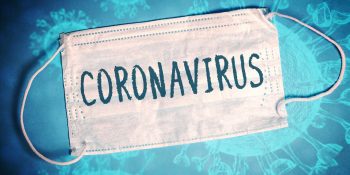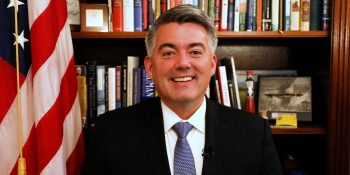Close contacts of sick people should self-quarantine
DENVER, March 19, 2020: The Colorado Department of Public Health and Environment (CDPHE) is urging self-isolation or self-quarantine for Coloradans and visitors to Colorado.
Self-isolation applies to people who: • Have a positive COVID-19 test.
- Have symptoms of COVID-19 (coughing, shortness of breath and/or fever).
- Are getting ill and think they might have COVID-19. Symptoms, especially early on, may be very mild and feel like a common cold. Symptoms could include a combination of cough, body aches, fatigue, and chest tightness. Some people may not develop fever or fever may not appear until several days into the illness. Self-quarantine applies to: •People who are close contacts of a person who either has a positive test or symptoms — even early symptoms — of illness.
“Right now not everyone who has been exposed to or becomes ill with COVID-19 will be able to or need to have a test to confirm whether or not they have the illness,” said Dr. Rachel Herlihy, state epidemiologist, CDPHE, “but isolation and quarantine, even without test results, is what people must do to slow the spread of this illness in our state. Even people who feel mild illness, and aren’t sure, should follow self-isolation orders, and their contacts should follow self-quarantine orders.”
Self-isolation is for people who have symptoms of COVID-19 and means staying away from others until 7 days have passed since the symptoms began and until any fever has been gone for 72 hours and all other symptoms are improving.
Self-quarantine is for people who don’t have symptoms but are close contacts of people who have symptoms. It means staying away from others for 14 days to see if one becomes ill. People who become ill with COVID-19 symptoms (even early symptoms) while self-quarantining then start the self-isolation period.
CDPHE has put together how-tos for people who are self-isolating and self-quarantining. They are available at covid19.colorado.gov/isolation-and-quarantine.
“We’re calling on all people in Colorado now to take personal responsibility and self-quarantine and self-isolate in order to protect people and our health care system,” said Jill Hunsaker Ryan, executive director, CDPHE, “and we are counting on everyone, including the media to share this information quickly and responsibly.”
Increasingly, cities and counties, including some in Colorado, are issuing stricter social distancing orders than those that currently are in place in Colorado. The stricter orders mean everyone must stay home, except for certain essential activities. The terms of such orders could vary by location. More restrictive orders are a more aggressive approach intended to enforce social distancing and keep people at home to limit disease spread.
Continue to stay up to date by visiting covid19.colorado.gov.
El Departamento de Salud y Medio Ambiente de Colorado pide a la población, especialmente a aquellos que podrían tener la enfermedad, a auto-aislarse.
Los contactos cercanos de estas personas enfermas, deben de estar en auto-cuarentena.
DENVER, marzo 19, 2020: El Departamento de Salud Pública y Medio Ambiente del Estado de Colorado (CDPHE) urge a auto-asilarse o ponerse en auto-cuarentena a todos los habitantes de Colorado y a sus visitantes.
El auto-aislamiento incluye a las personas que:
• Hayan dado resultado positivo a la prueba del COVID-19.
• Presenten síntomas del COVID-19 (tos, dificultad de respirar y/o fiebre).
• Se están enfermando y sospechen que pueden tener el COVID-19. Los síntomas, especialmente al inicio, pueden ser muy leves y pueden sentirse como un resfriado común. Los síntomas pueden incluir una combinación de tos, dolores de cuerpo, fatiga y rigidez en el pecho. Algunas personas pueden no presentar síntomas hasta varios días después de estar enfermos.
La auto-cuarentena incluye a:
• Personas que estén en contacto cercano con una persona que ha resultado positivo a la prueba, o con síntomas — aún síntomas leves — de la enfermedad.
“Ahora mismo cualquier persona que haya sido expuesta o se haya enfermado con el COVID-19 podrá o necesitará llevar a cabo una prueba para confirmar si tiene o no la enfermedad,” dijo la Dra. Rachel Herlihy, epidemióloga del estado, “pero el aislamiento y la cuarentena, aún sin los resultados, es lo que las personas deben hacer para disminuir la propagación de la enfermedad en nuestro estado. Aún las personas que sientan una leve enfermedad, y no estén seguros de tenerla, deben seguir la instrucción de un auto-aislamiento y sus contactos deben seguir la instrucción de la auto-cuarentena”.
El auto-aislamiento es para las personas que tengan síntomas del COVID-19 y significa estar lejos de los demás hasta que 7 días hayan pasado desde que los síntomas hayan comenzado y hasta que la fiebre haya desaparecido por 72 horas y todos los demás síntomas hayan mejorado.
La auto-cuarentena es para las personas que no tienen síntomas pero que estuvieron en contacto con personas que tienen síntomas. Significa estar lejos de los demás por 14 días para ver si se presenta la enfermedad. Personas que se enfermen con COVID-19 (aún primeros síntomas) mientras estén en auto-cuarentena, deben comenzar el periodo de auto-aislamiento.
El CDPHE ha puesto una serie de procedimientos para personas que estén en auto-aislamiento y auto-cuarentena. Estos están disponibles en covid19.colorado.gov/isolation-and-quarantine.
“Le estamos haciendo un llamado a toda la población de Colorado para que tomen la responsabilidad y se auto-aíslen y se pongan en auto-cuarentena para proteger a las personas y a nuestro sistema de salud,” dijo Jill Hunsaker Ryan, directora ejecutiva del CDPHE, “ y estamos contando con todos, incluyendo los medios de comunicación para que compartan esta información rápidamente y con responsabilidad”.
Algunas ciudades y condados, incluyendo algunos en Colorado, han realizado órdenes de distancia social más estrictas que las actuales en Colorado. Órdenes más estrictas significa que todos deben quedarse en casa, excepto para algunas actividades esenciales. Los términos de estas órdenes pueden variar de lugar a lugar. Órdenes más estrictas son medidas más agresivas destinadas a hacer obligatorio la distancia social y mantener a las personas en casa para limitar la propagación de la enfermedad.
Actualizaciones en: covid19.colorado.gov.
SPREAD THE NEWS
COMMENT, Like, Follow & SHARE @I70Scout
CURRENT EDITION
WEATHER & TRAFFIC PUZZLES RECENT NEWS ADVERTISE WITH US

